The 16 Best Face Oils for Every Skin Type, Tested and Reviewed
They’re a beauty editor secret weapon.
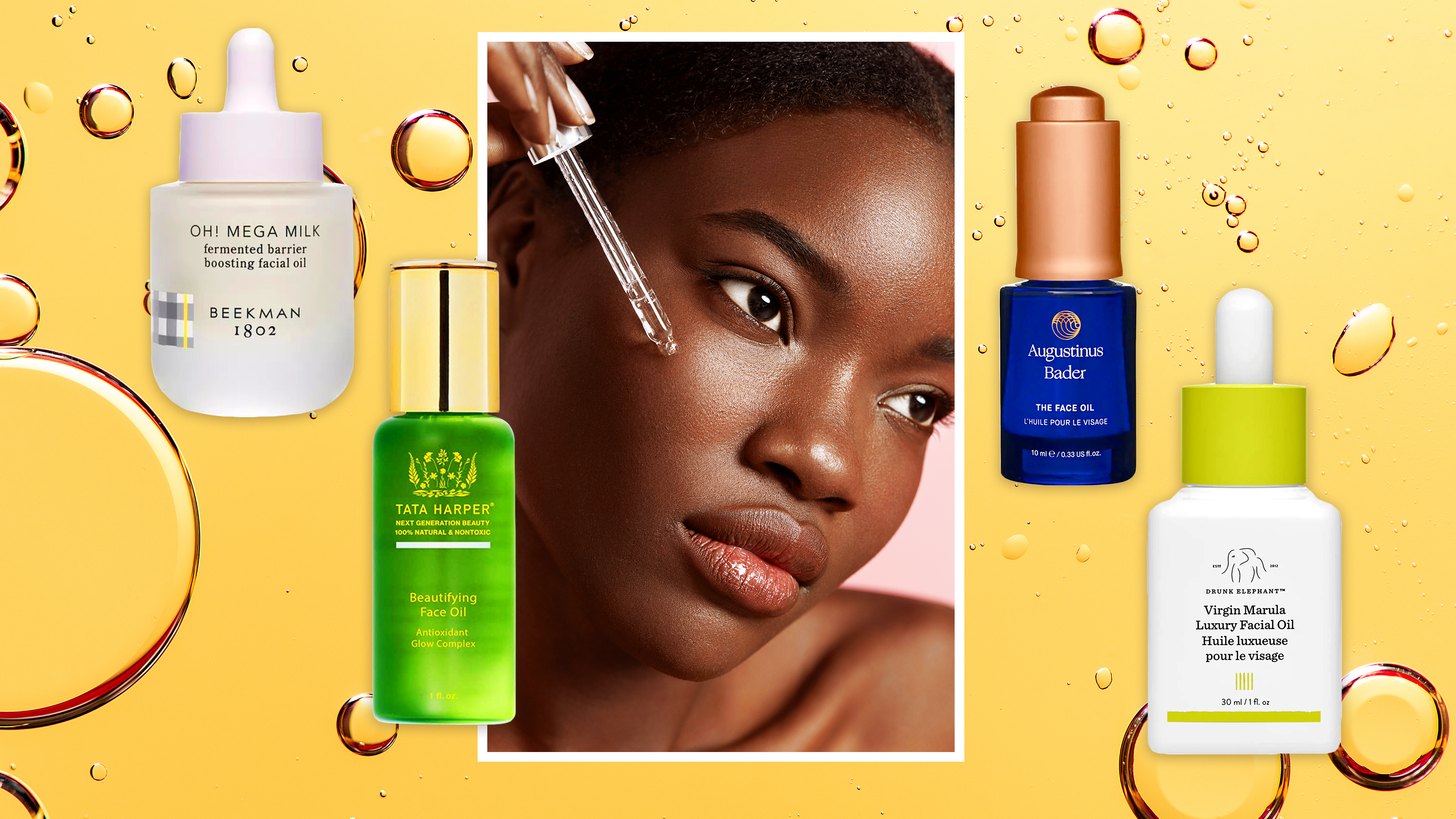
Select the newsletters you’d like to receive. Then, add your email to sign up.
You are now subscribed
Your newsletter sign-up was successful
Want to add more newsletters?

Delivered daily
Marie Claire Daily
Get exclusive access to fashion and beauty trends, hot-off-the-press celebrity news, and more.

Sent weekly on Saturday
Marie Claire Self Checkout
Exclusive access to expert shopping and styling advice from Nikki Ogunnaike, Marie Claire's editor-in-chief.

Once a week
Maire Claire Face Forward
Insider tips and recommendations for skin, hair, makeup, nails and more from Hannah Baxter, Marie Claire's beauty director.

Once a week
Livingetc
Your shortcut to the now and the next in contemporary home decoration, from designing a fashion-forward kitchen to decoding color schemes, and the latest interiors trends.

Delivered Daily
Homes & Gardens
The ultimate interior design resource from the world's leading experts - discover inspiring decorating ideas, color scheming know-how, garden inspiration and shopping expertise.
When I think about face oils my mind goes straight to greasy, slick, suffocating, and sticky. But after extensively testing the best face oils on the market, I've learned that they're anything but. A well-formulated oil has the power to treat my skin issues (looking at you, acne) and are masters of maintaining skin hydration. You just have to pick the right player (read: jojoba oil, marula oil, moringa oil—the list goes on) to get the results you're after, but once you do, it inevitably leaves you with healthy, hydrated, and glowy skin. Trust me—I have the photos to prove it.
"Facial oils can provide benefits to the skin by acting as occlusives (which act like sealants to keep water in the skin) and emollients (which soften and strengthen the outer layer of the skin by filling in spaces between skin cells)," explains board-certified dermatologist Melissa Kanchanapoomi Levin, M.D. FAAD. "Skincare oils often form a protective barrier on the outer layer of the skin, providing antioxidative, anti-inflammatory, and skin barrier repair properties."
Questioning my oil-loving antics? Try some of the best face oils for yourself. Some of the Marie Claire team and I are sharing our favorite products for oily, sensitive, dry, broken-out, and yes, even normal skin. If you’ve never given a face oil the time of day, consider this the perfect place to start.
The Best Face Oils for Every Skin Type
- Best Face Oil Overall: Drunk Elephant Marula Oil
- Best Overnight Face Oil: Dr. Brandt The Glow Overnight Retinol Oil
- Best Radiance-Boosting Face Oil: Acaderma Rainbow Radiance Face Oil
- Best Face Oil for Environmental Protection: Klur Unseasonal Kind Lipid Replenish Oil
- Best Face Oil for Sensitive Skin: Tata Harper Bio-Shield Face Oil
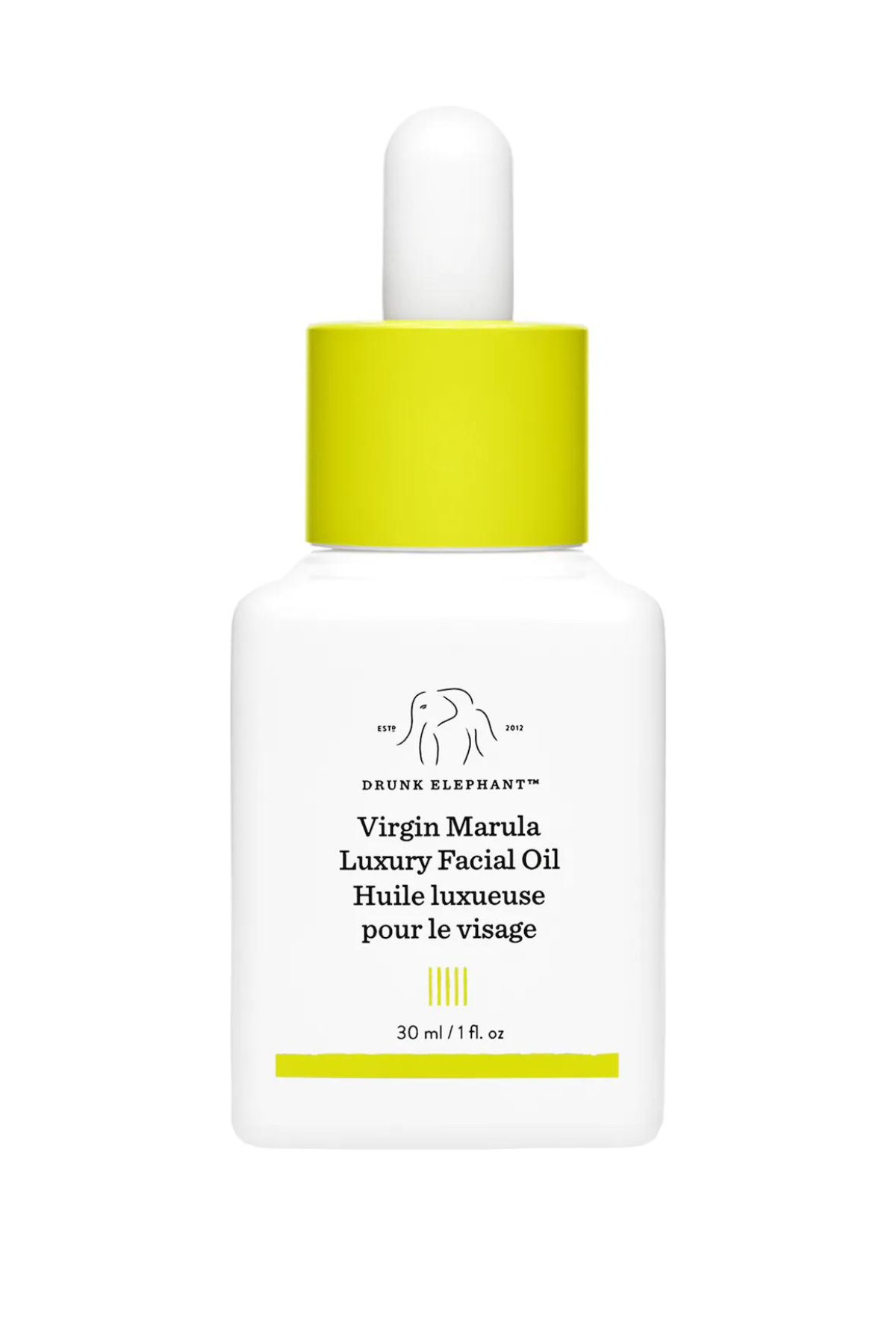
I credit this oil for curing my out-of-whack, ultra-sensitive skin a few years back. The formula is extremely rich in fatty acids, which help keep the moisture barrier healthy. It regulated my oil production to help my skin become glowy and no longer greasy. Perhaps the best part about this oil is the unmatched glow. I like to go heavy on the oil in the evenings and use just a few drops in my foundation in the morning for an extra bit of shine.
Key Ingredients: Marula seed oil (hydrating)
Size: 1 fl. oz.
Who It’s For: Containing nothing but 100% marula oil, this nourishing and fast-absorbing formula is great for all skin types, including oily, acne-prone, and even sensitive.
What We Love: One-ingredient formula; Non-comedogenic; Fragrance-free; Good for sensitive skin; Editor-approved
What We Don’t: Some say it sits on the skin
Review for MC: “I was first introduced to the Drunk Elephant Marula Oil by an icon in the beauty industry: former editor-in-chief of Essence Magazine, Susan Taylor. Of course, any beauty recommendation that comes from the mouth of legend is one that I immediately have to partake in, so I went out and got my own bottle. I don’t typically use oils in my routine, as I try to keep it as simple as possible. However, when my skin feels particularly dry or looks dull, this oil ALWAYS saves the day. It doesn’t break me out, which is a big deal for my acne-prone skin, and it brings life back to my skin. I will always keep a bottle in my skin-care cabinet and highly recommend you do, too.” — Ariel Baker, Freelance Beauty Writer
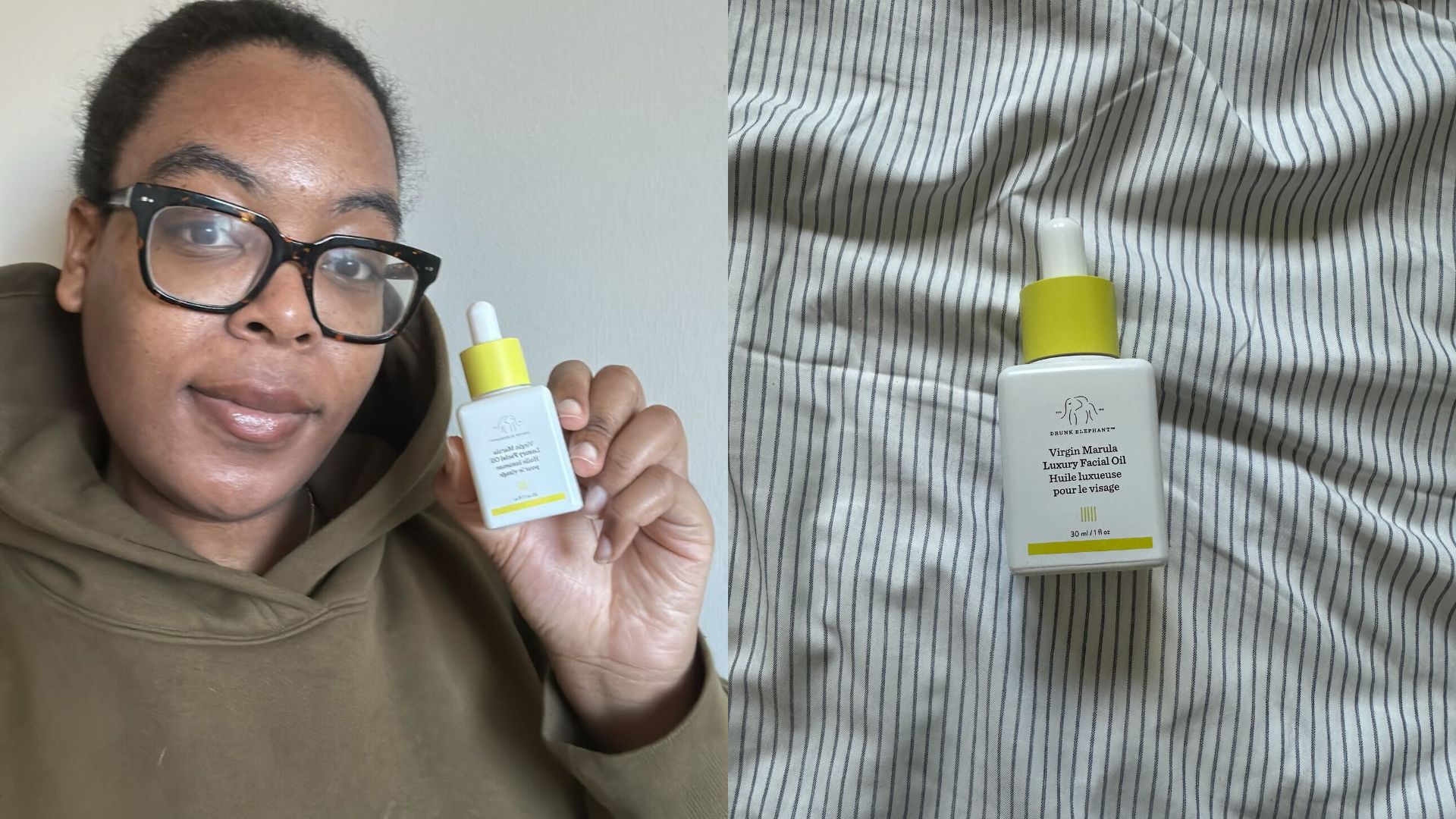
Freelance beauty writer Ariel Baker wears Drunk Elephant Marula Oil.
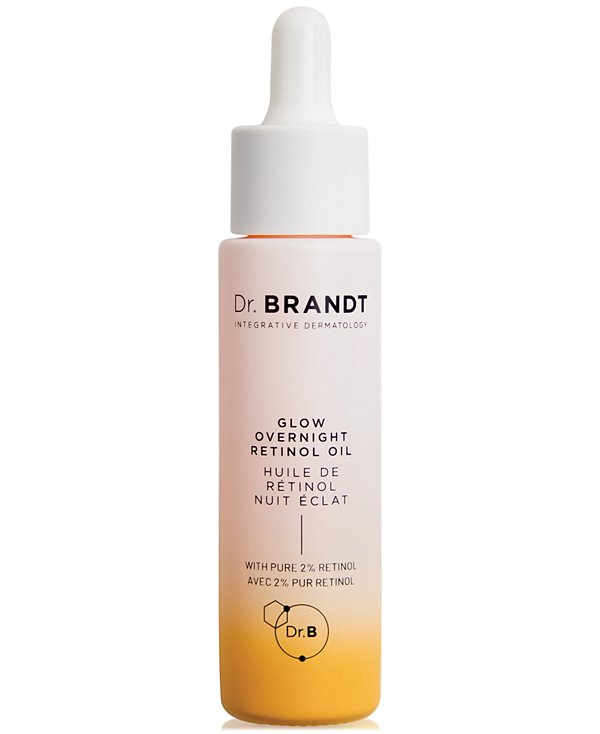
If you’ve ever been weary of retinol because of its somewhat harsh nature, let me introduce you to this new must-have formula from Dr. Brandt. Designed to target dullness, fine lines, wrinkles, and uneven texture while you catch up on your beauty sleep, it couples retinol and hydroxy pinacolone retinoate (HPR), an innovative retinoid that’s potent yet gentle, with hydrating squalane to nourish, not irritate, the skin. What’s more, it contains a special antioxidant-rich superfood complex, Oxiblock-SF, to further increase your glow.
Key Ingredients: Hydroxy pinacolone retinoate (rejuvenating), Oxiblock-SF (antioxidant), retinol (rejuvenating), squalane (hydrating)
Size: 1 fl. oz.
Who It’s For: Anyone who has previously avoided retinol products will appreciate the delightfully nourishing feel of this non-irritating, skin-rejuvenating oil—even those with sensitive skin!
What We Love: Non-irritating formula; Super nourishing feel; Editor-approved
What We Don’t: Can only be used at night
Review for MC: “My skin can handle retinoids pretty well (I use Tretinoin twice a week), but I was still amazed at how gentle this formula was. It acts more like a treatment than a moisturizer—it doesn’t instantly absorb—but feels soothing and nourishing. It’s fully soaked in by morning and I wake up with smooth, supple skin and the healthiest-looking glow. This has earned a permanent spot in my night routine.” — Jenna Igneri, Freelance Beauty Writer
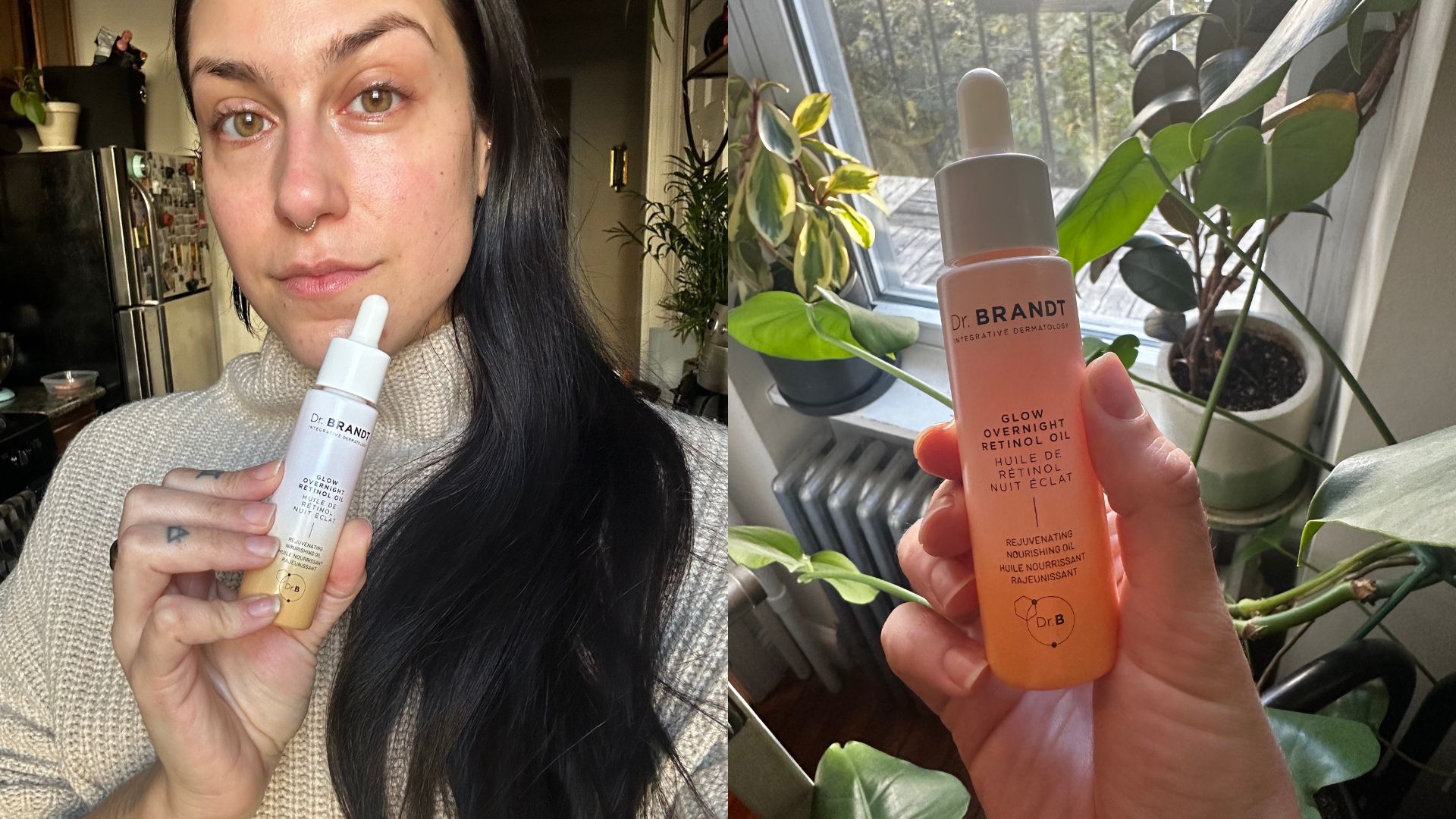
Freelance beauty writer Jenna Igneri wears Dr. Brandt Glow Overnight Retinol Oil.
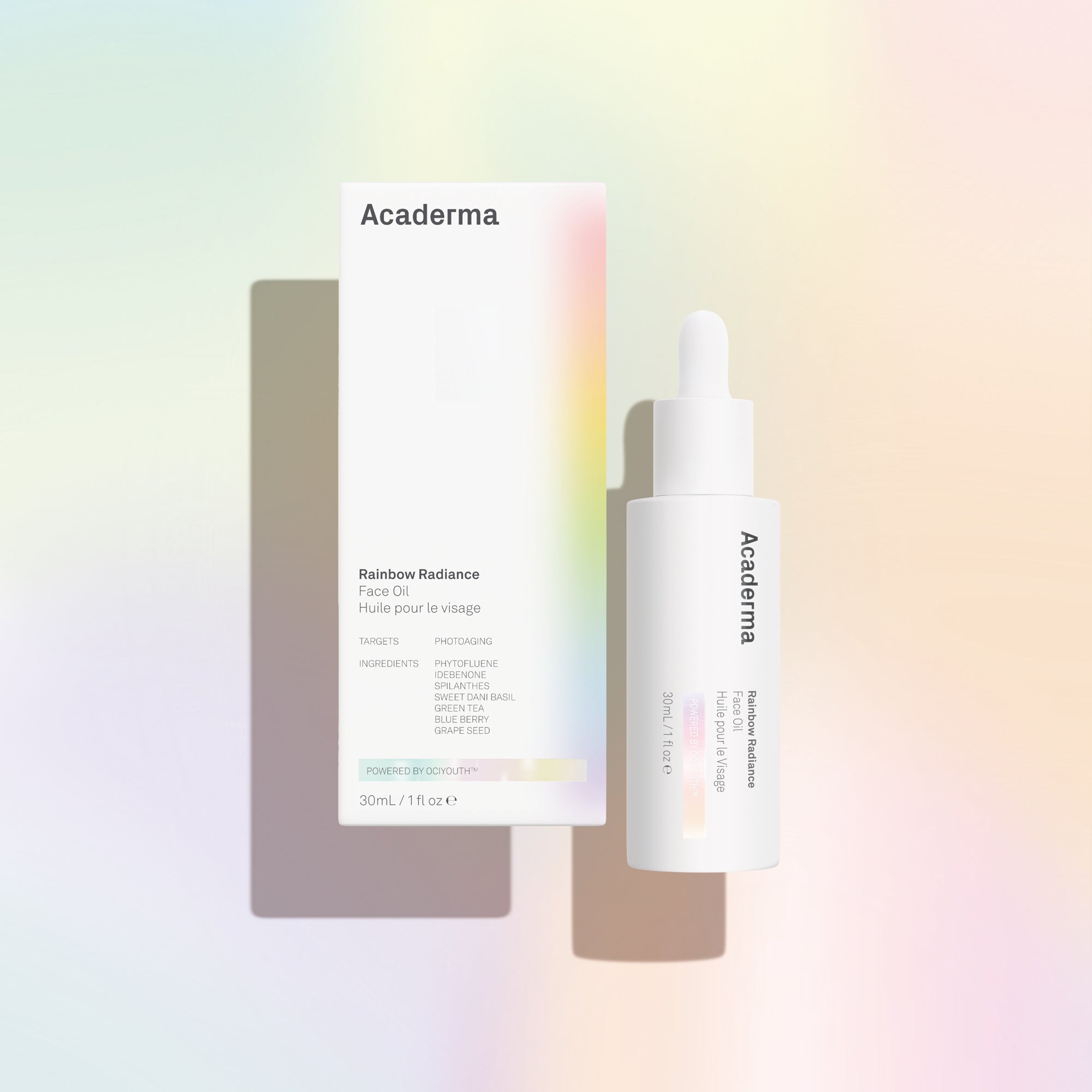
Acaderma really packed the glow-inducing, antioxidant-rich ingredients into this advanced formula, which was designed to target signs of photoaging, such as fine lines and wrinkles, dullness, and loss of firmness and elasticity. Despite its potency, however, it feels ultra-lightweight and gentle upon application, absorbing into the skin without a trace.
Key Ingredients: Phytofluene (anti-photoaging), idebenone (antioxidant), spilanthes (fine line reducing), sweet dani basil (protective), green tea (antioxidant), grape seed (hydrating), blueberry (softening, plumping)
Size: 1 fl. Oz.
Who It’s For: Whether you’re looking for a quick glow boost or looking to reverse more prominent sun damage, this non-greasy antioxidant-packed oil will do the trick—and it works well with most skin types.
What We Love: Targets photoaging; Packed with antioxidants; Ultra-lightweight formula; Editor-approved
What We Don’t: Has a strong scent
Review for MC: “This might be one of the lightest face oils I’ve ever used—my skin drinks it up. It leaves behind virtually no residue, just a radiant glow. While I’d need to use it for longer to witness its anti-photoaging effects, it nourishes my skin—I have no winter flaking. It also smells like a creamsicle, which I definitely don’t mind.” — Jenna Igneri, Freelance Beauty Writer
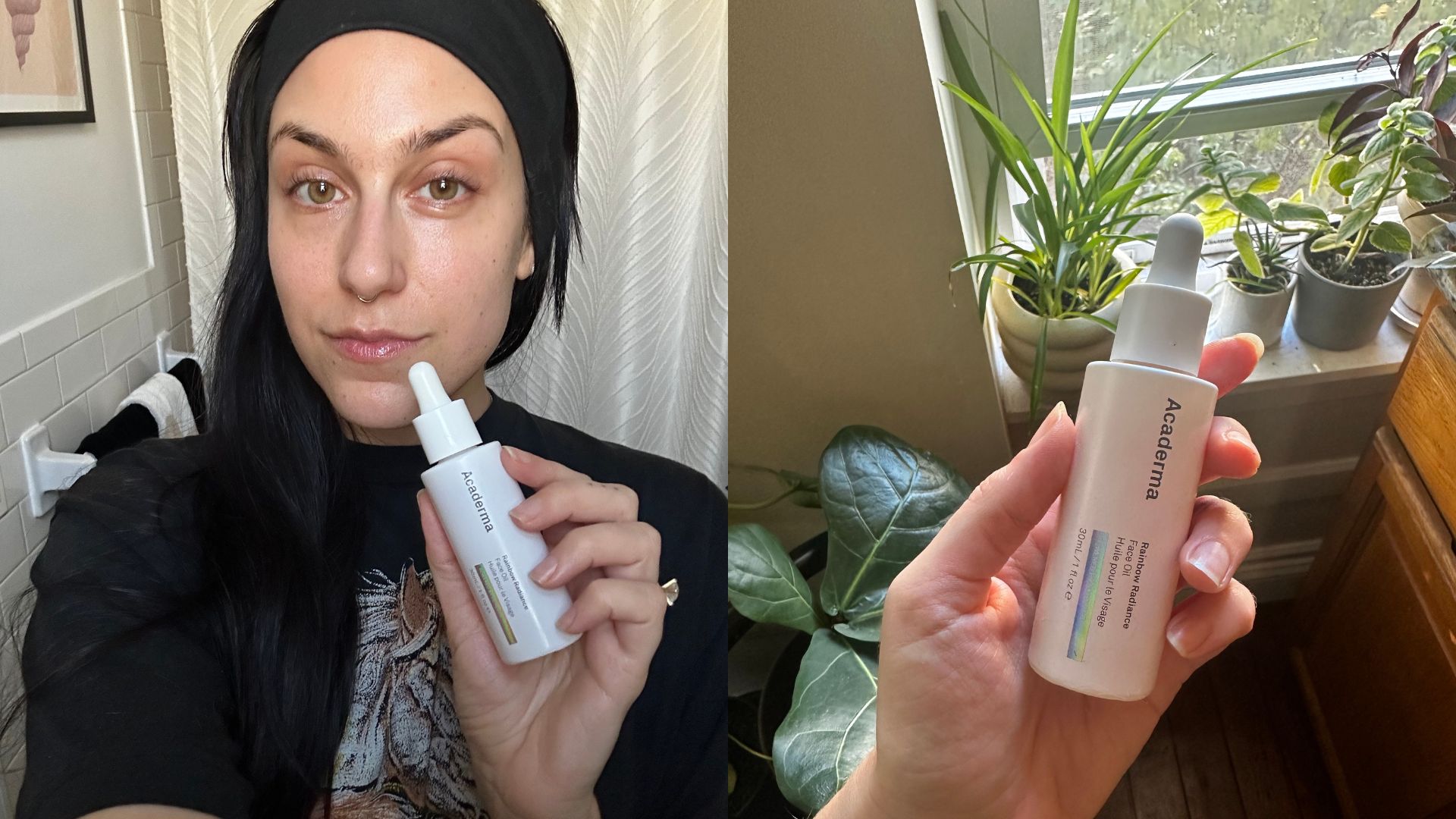
Freelance beauty writer Jenna Igneri wears Acaderma Rainbow Radiance Face Oil.
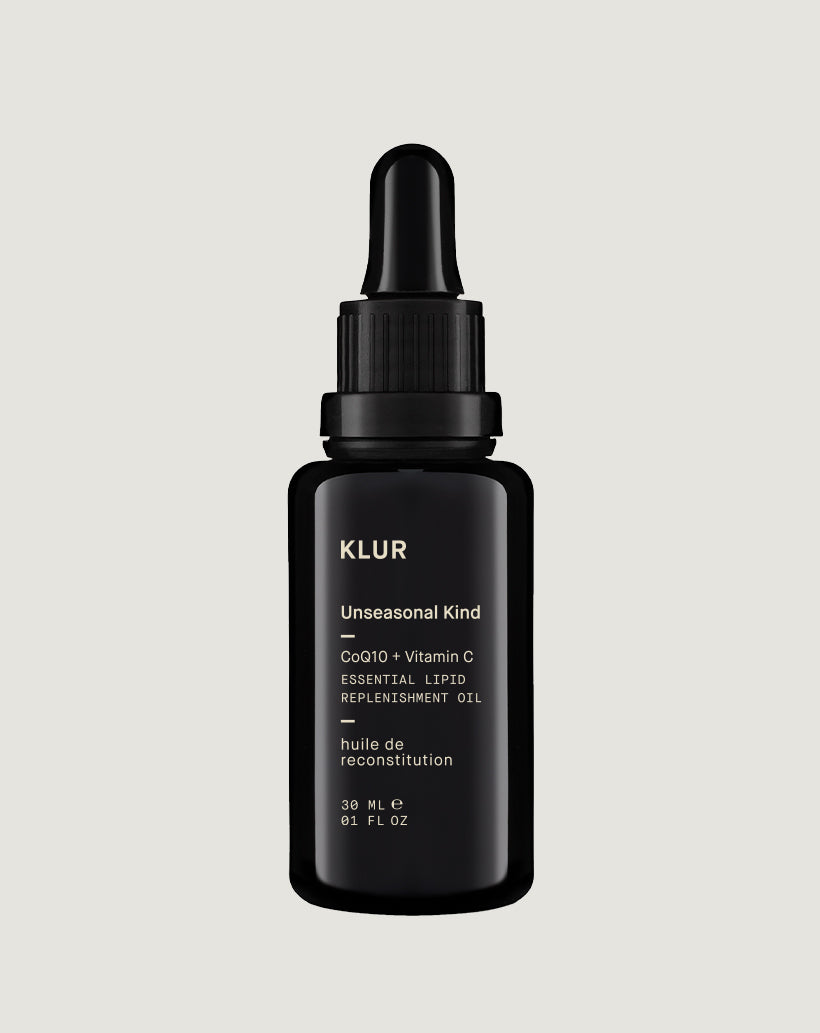
Think of this face oil as your armor against the outside world. Thanks to a powerful blend of squalane, coq10, and vitamins C and E, this formula is brimming with antioxidants and mimics the skin’s natural protection mechanisms. It’s also rich in nutrients and lipids that deeply nourish, replenish, and reenergize while fortifying the natural moisture barrier for strong, healthy skin.
Key Ingredients: Squalane (hydrating), coq10 (firming), vitamin C (brightening), vitamin E (protective)
Size: 1 fl. oz.
Who It’s For: This nourishing oil is designed to be suitable for all skin types, and its protective nature makes it an extra beneficial option for people who live in high-pollution areas like cities.
What We Love: Reinforces the skin barrier; High in antioxidants; Deeply replenishing formula; Editor-approved
What We Don’t: It leaves a slightly greasy residue
Review for MC: “I’ve been using Klur’s Unseasonal Kind Lipid Replenishment Oil on and off for years now, and this stuff is magic in a bottle. My skin gets really dull and dry during the colder months of the year, and this oil instantly infuses life back into it. Living in NYC, my complexion can use an extra layer of protection. I like to put it on first thing in the morning so by the time I get around to doing my makeup, my skin is glowy, plump, and smooth.” — Jenna Igneri, Freelance Beauty Writer
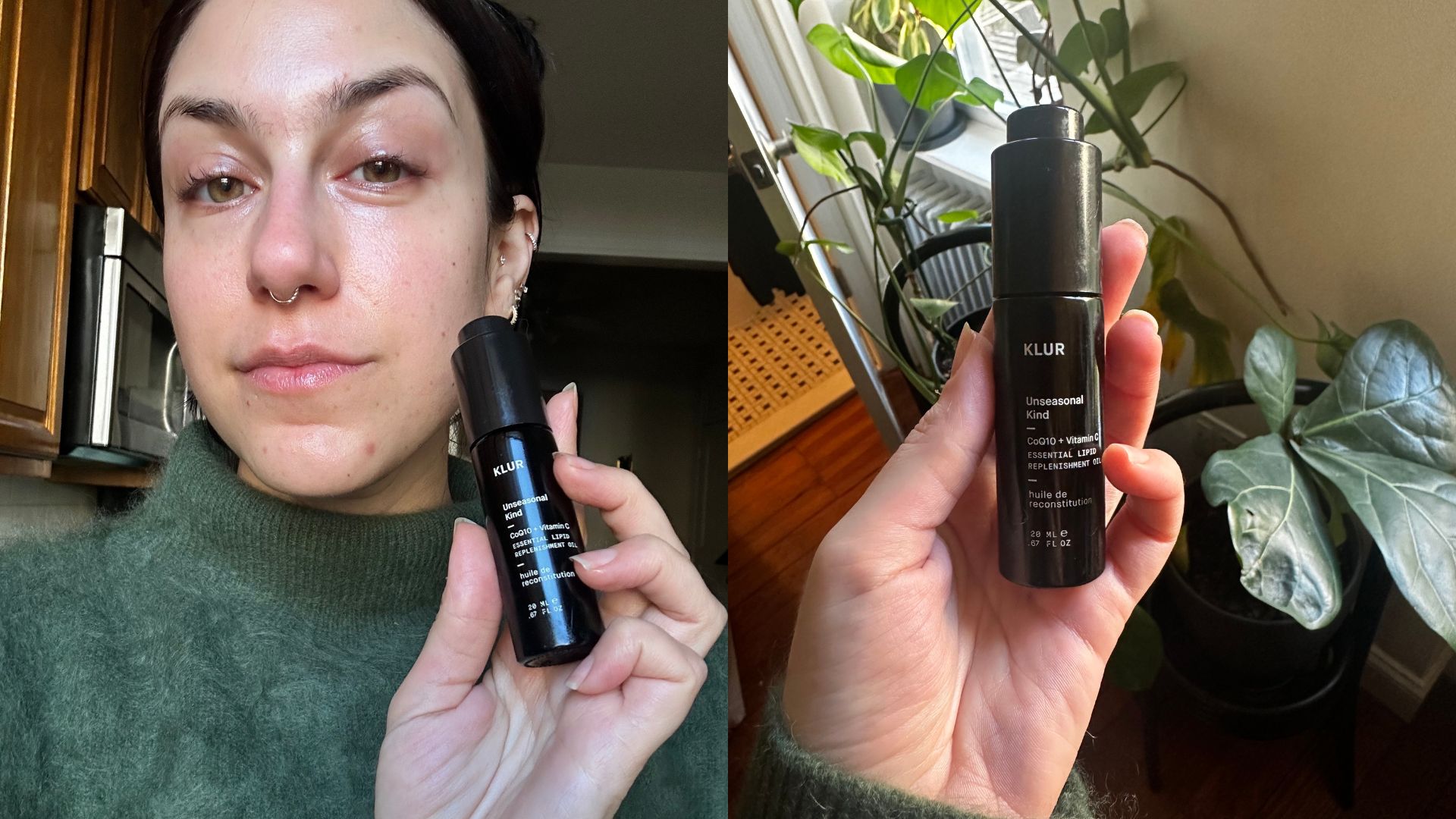
Freelance beauty writer Jenna Igneri wears Klur Unseasonal Kind Lipid Replenishment Oil.
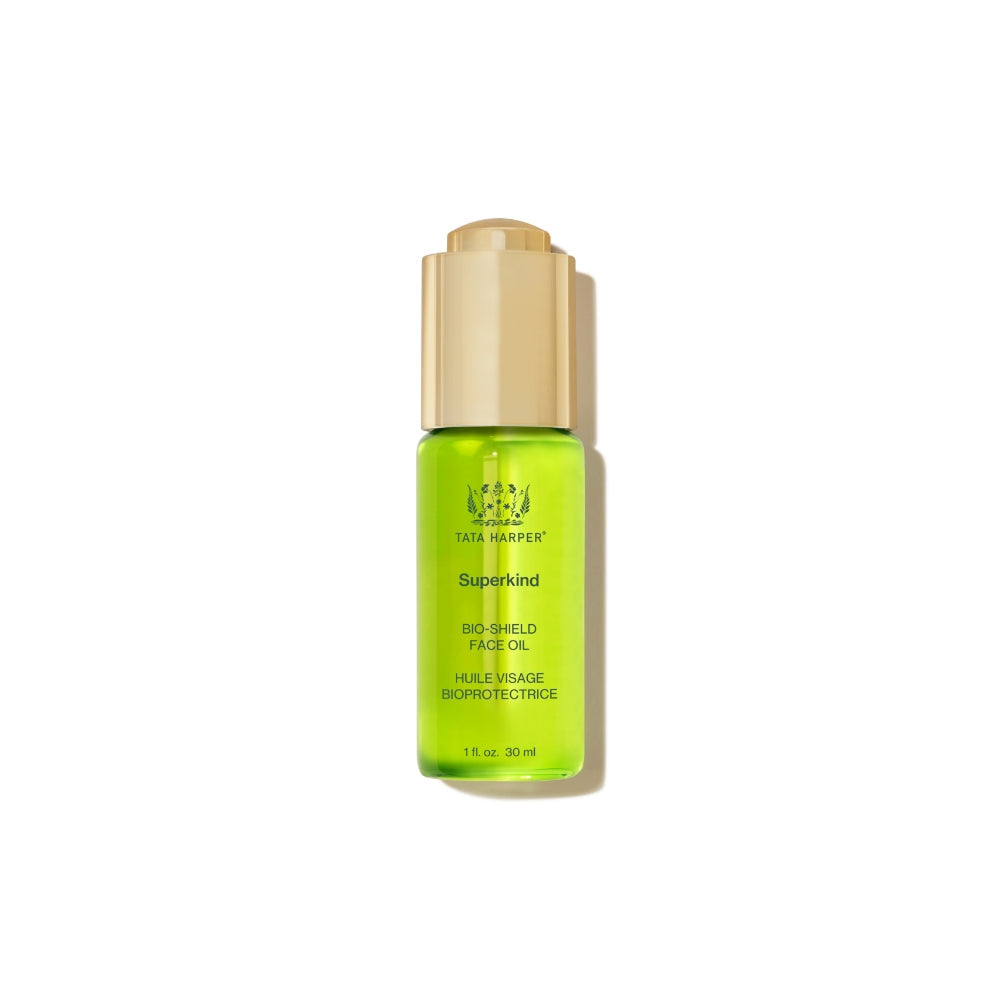
If you have sensitive or stressed skin, you know the struggle of finding a formula that won’t cause a reaction. Tata Harper’s Bio-Shield Face Oil is designed to strengthen your skin’s defenses by repairing its moisture barrier, all while soothing, nourishing, and deeply hydrating. More importantly, you can rest easy knowing the formula won’t irritate your skin: it’s hypoallergenic, dermatologist-tested, vegan, and free of gluten, wheat, soy, nut derivatives, fragrance, essential oils, and 85+ common allergens and irritants.
Key Ingredients: Holy basil (adaptogenic), reishi mushroom (adaptogenic), vitamins C and E (protective), oat ceramides (soothing), omega fatty acids (strengthening)
Size: 1 fl. oz.
Who It’s For: This oil is packed with nourishing, strengthening, and protective plant-based ingredients, making it a great option for anyone with extra sensitive skin or a compromised barrier.
What We Love: Skin barrier-strengthening; Free of common allergens; Editor-approved
What We Don’t: Expensive
Review for MC: “When I need a good skin day, I reach for this lightweight silky face oil. It’s made to work, especially for sensitive skin like mine: It’s free of over 85+ common irritants, but the magic is in all the powerful but gentle-on-skin ingredients Harper included, like adaptogens from reishi mushroom and holy basil, fruit-based vitamins C and E, oat ceramides, and plant-derived omega fatty acids. I smooth it on twice a day, and my skin is totally moisturized, soothed, and protected against the harsh winter weather. (I also love patting in a few drops as a midday pick-me-up to refresh my makeup). The gorgeous green-and-gold glass bottle looks stunning on my bathroom counter and delights me every time I reach for it.” — Brianna Peters, Freelance Beauty Writer
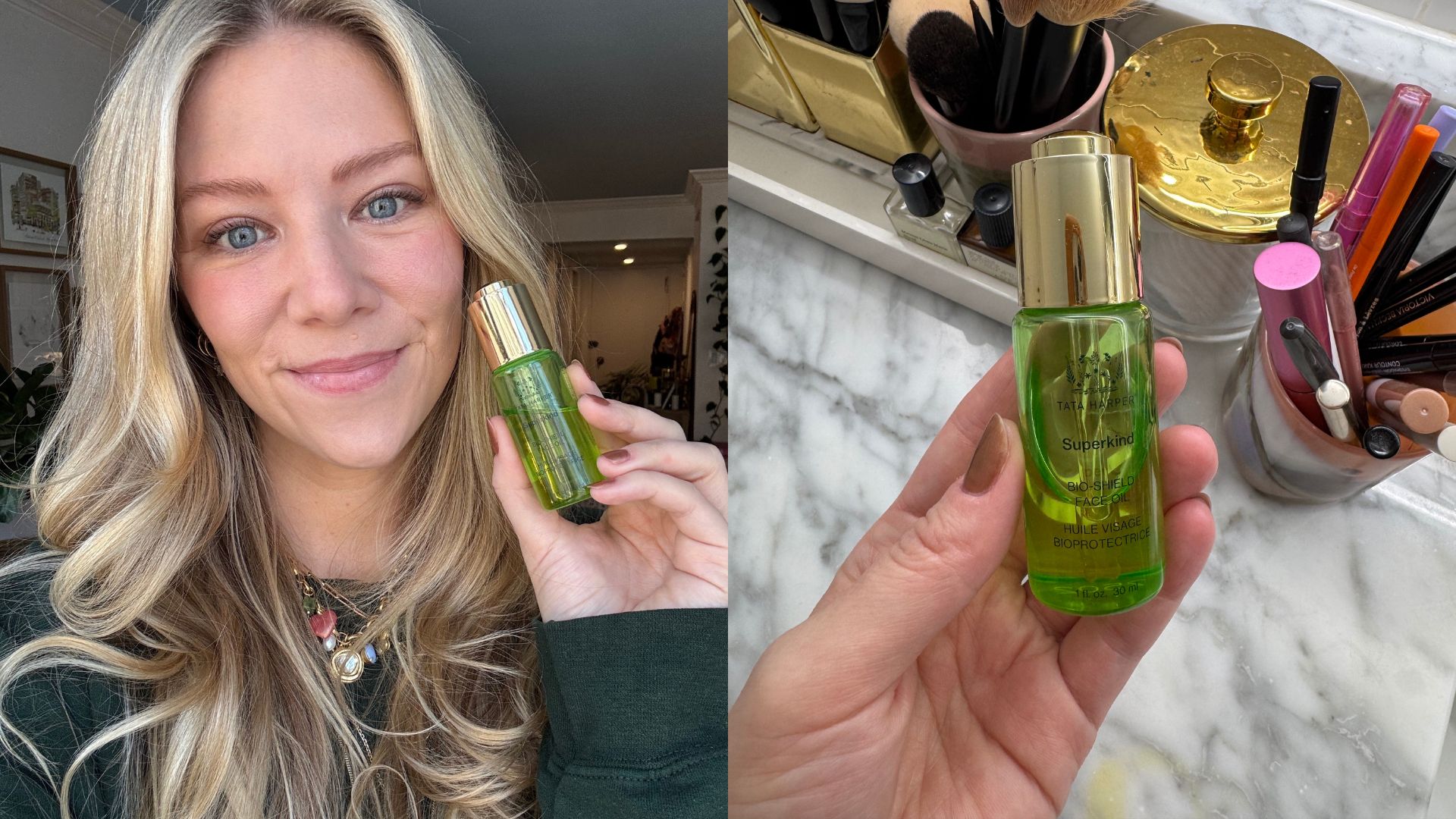
Freelance beauty writer Brianna Peters wears Tata Harper Bio-Shield Face Oil.
Other Face Oils We Love
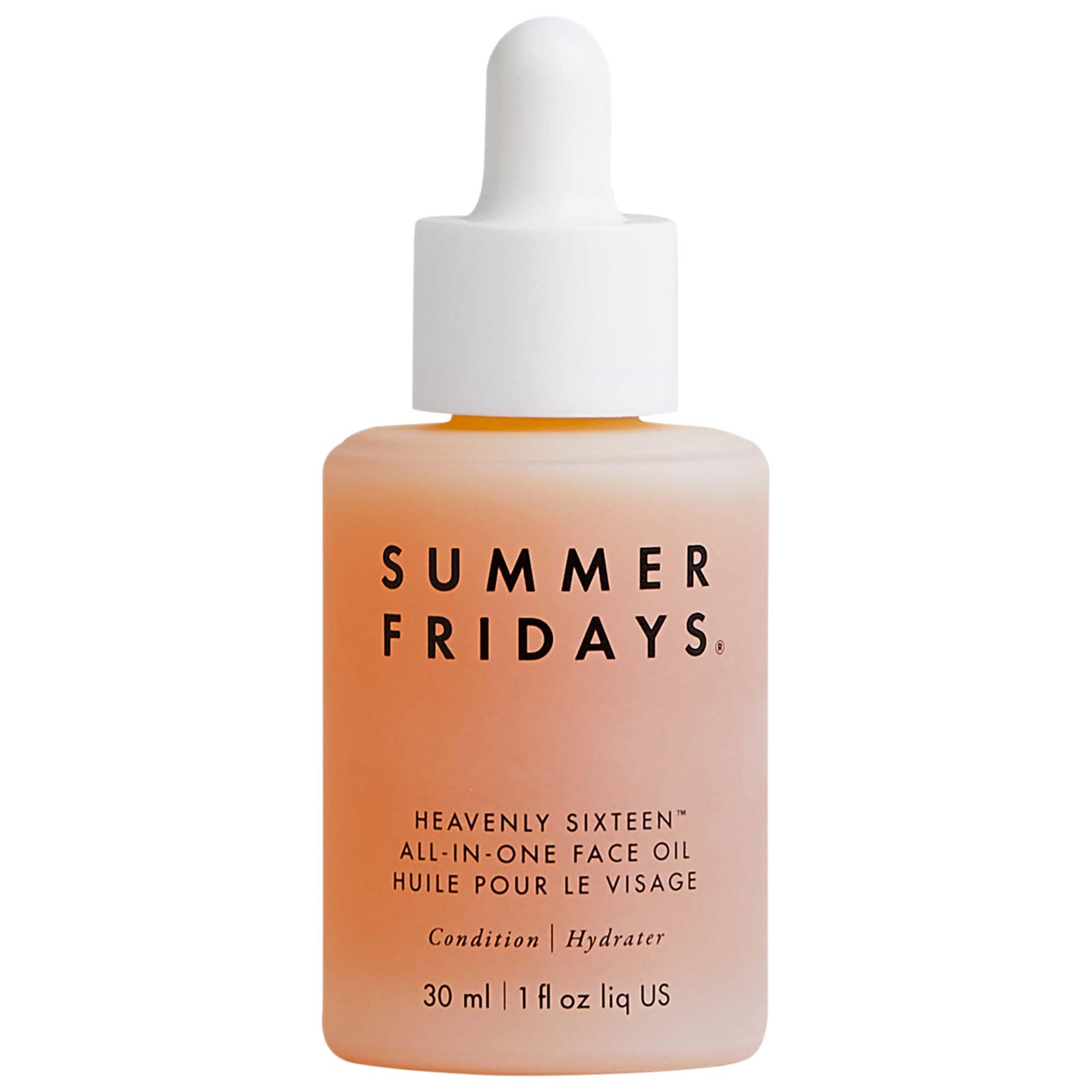
A whopping 16 plant-based oils make up this deeply restorative formula—hydrating meadowfoam, replenishing sea buckthorn, and barrier-supporting prickly pear, to name a few—which work together to deliver omega-3 fatty acids, vitamins, and antioxidants to hydrate, plump, and boost skin elasticity. More importantly, all 16 oils are non-comedogenic, making this the perfect nourishing, nutrient-packed treat for those with oily skin—no clogged pores here.
Key Ingredients: 16 plant oil blend (hydrating, plumping, barrier supporting)
Size: 1 fl. oz.
Who It’s For: If you’re looking for a vegan formula that doesn’t skimp on nutrient-dense ingredients, you can’t go wrong with this oil—and because it’s non-comedogenic, even oily and acne-prone skin types can use it.
What We Love: Non-comedogenic; Supports the skin barrier; Editor-approved
What We Don’t: Strong scent
Customer Review: "I decided to give this a whirl since I struggled with some brutal dryness, irritation, acne, and flaky skin. I use one to two drops at night after moisturizing and literally only a few days of using this, my skin is bouncy and hydrated!! I have combo, super sensitive acne-prone skin!" — Sephora
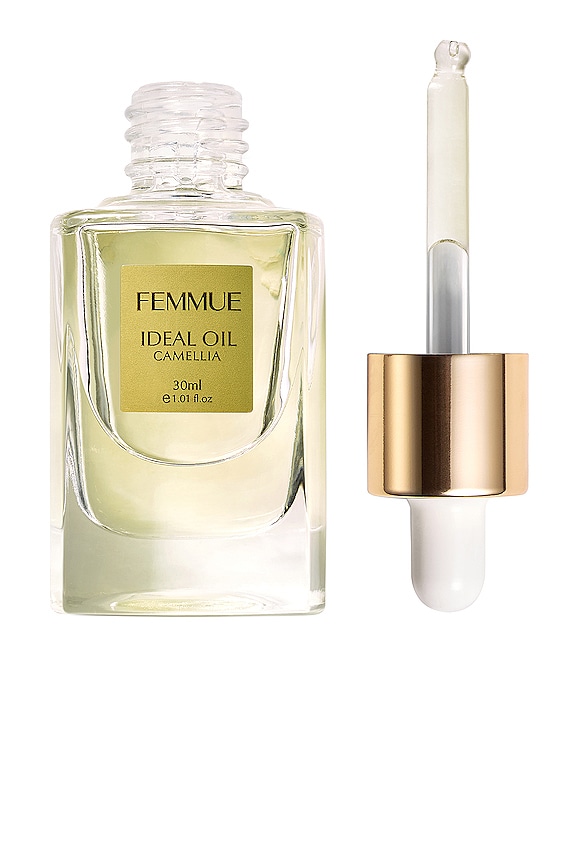
Powered by flower therapy, K-beauty favorite Femmue infuses the healing and strengthening benefits of flowers into all of its formulas. This one, in particular, places nourishing and antioxidant-rich camellia seed oil front and center, pairing it with vitamin E and olive, rosehip, and grapeseed oils. The result? A quick-absorbing oil that helps to smooth lines and wrinkles, brighten tone, and totally revitalize the complexion.
Key Ingredients: Camellia seed oil (nourishing, antioxidant), olive oil (hydrating), rosehip oil (hydrating), grape seed oil (hydrating), jasmine (antioxidant), and vitamin E (antioxidant)
Size: 1 fl. oz.
Who It’s For: Anyone looking for a hydrating oil to smooth fine lines and firm the skin will appreciate this floral formula—just keep in mind that those with sensitive skin may find the jasmine oil to be irritating.
What We Love: Smoothes and brightens; Lightweight; Cruelty-free; Editor-approved
What We Don’t: Strong scent
Customer Review: "My skin immediately took to this oil. It's hydrating without feeling oily or sticky, so it should be good for all skin types! not to mention the packaging feels and looks very luxurious. highly recommend." — Revolve
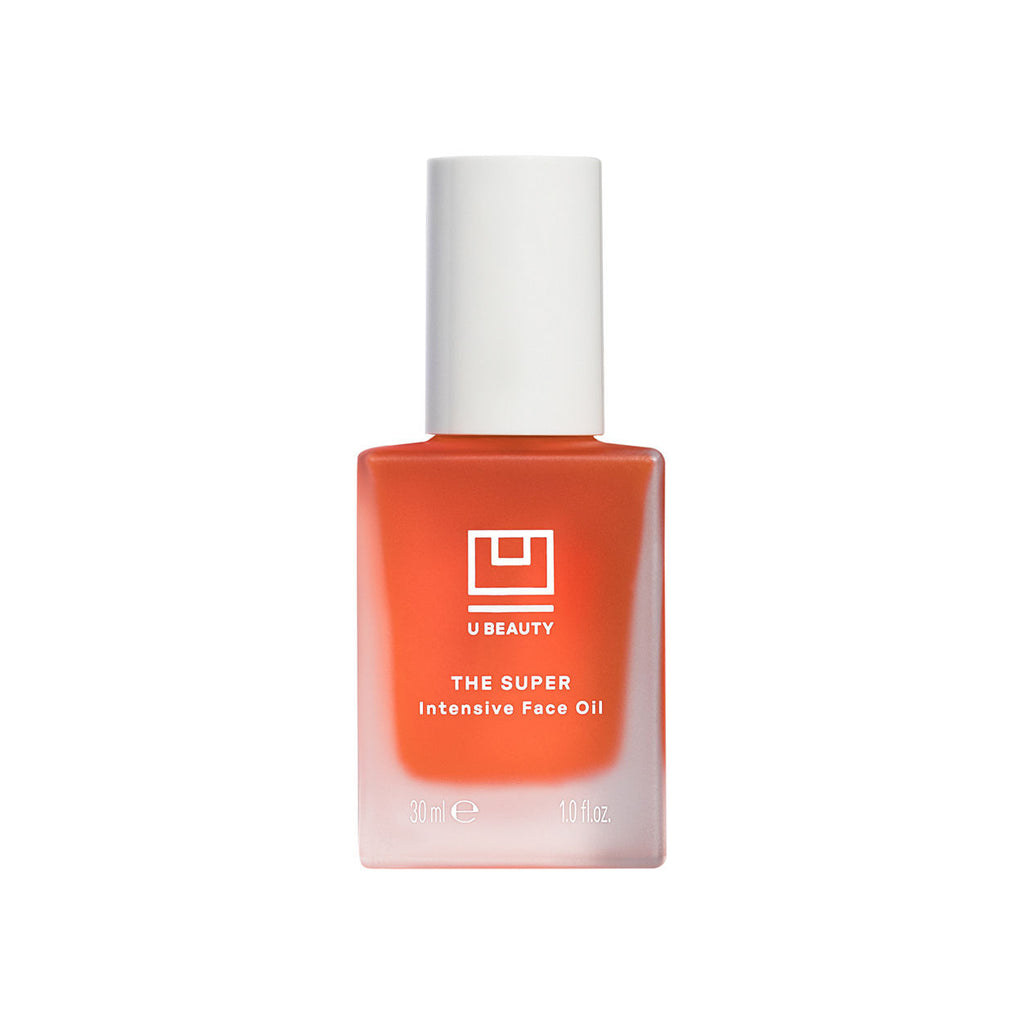
Dry, dehydrated skin is no match for this intensely nourishing oil, which works to replenish the skin’s lipid layer and prevent moisture loss, all while targeting signs of aging. It’s brimming with superstar hydrators like squalane, hyaluronic acid, and avocado oil, as well as skin-protecting antioxidants, vitamins, and peptides. Despite its deeply moisturizing nature, it has a delightfully lightweight, non-sticky texture that leaves skin bouncy.
Key Ingredients: Astaxanthin (protective), avocado oil (hydrating), vegan squalane (hydrating), hyaluronic acid (hydrating), stabilized vitamins C and E (protective), peptides (plumping, strengthening)
Size: 1 fl. oz.
Who It’s For: Whether you’re dealing with winter dryness or your skin is parched year-round, this oil delivers hydration deep into the skin while restoring vitality.
What We Love: Deeply nourishing; Lightweight texture; Nutrient-rich formula
What We Don’t: Expensive
Customer Review: “I’ve tried numerous face oils & this is my new favorite. The viscosity is almost gel-like, yet it absorbs well without feeling sticky. I use it at night as the last step in my routine. I wake up with glowing, hydrated skin. Great product to use with gua sha as well.” — Bluemercury
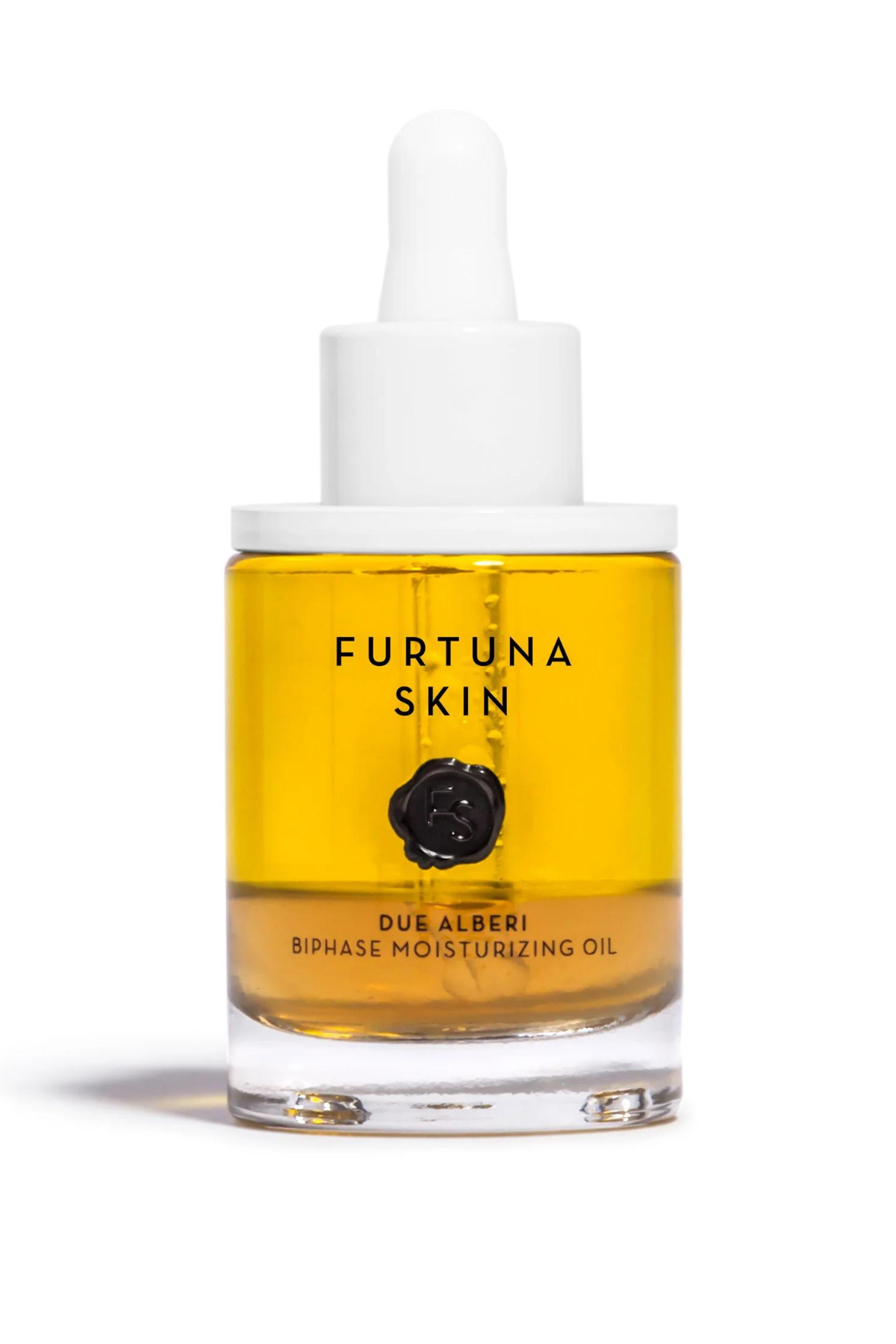
Some face oils run on the heavier side and should be reserved for nightly use. This one? Slather it on in the morning—it’s lightweight and packed with loads of ingredients designed to protect your skin from environmental aggressors like pollution, blue light, and free radicals. I’ll spare you the nitty-gritty ingredient details, but you should know this contains a high concentration of radiance-boosting vitamin C and collagen-boosting chicory, giving your skin a healthy, out-of-this-world glow.
Key Ingredients: Vitamin C (brightening, protective), chicory (lifting), olive oil (hydrating), vitamin E (protective)
Size: 1 fl. oz.
Who It’s For: Thanks to its high levels of antioxidants, this formula is great for those looking to fade dark spots and hyperpigmentation and city folk looking to keep skin shielded from pollution.
What We Love: Protects against the environment; Packed with antioxidants and nourishing oils; Not greasy; Editor-approved
What We Don’t: Herbaceous fragrance
Customer Review: “By far, the most effective face oil I’ve used. It’s luxurious, but more so, it’s effective! I’ve noticed an increase in brightness, smaller pore size, and less redness only after 3 weeks of use.” — Bluemercury
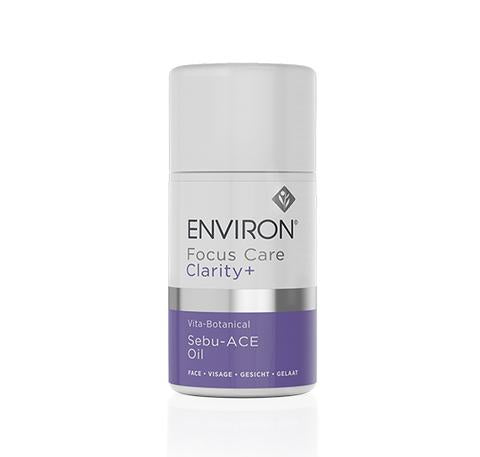
Applying face oil to acne-prone skin may not seem intuitive, but the right formula can make a world of difference. Take this powerhouse oil from Environ, which is formulated with essential vitamins to help control blemishes while leaving skin hydrated, refreshed, and balanced. “This is an ideal facial oil for those prone to breakouts and looking for a lightweight formula,” says board-certified dermatologist and dermatologic surgeon Anetta Reszko, M.D. FAAD. “It combines vitamins A, C, and E to refine skin texture and help balance oil production.”
Key Ingredients: Vitamin A (refining), vitamin C (smoothing), vitamin E (protective)
Size: 2.03 fl. oz.
Who It’s For: If your skin is oily or prone to breakouts, this vitamin-rich formula will help keep your skin in check while providing lightweight hydration.
What We Love: Controls oil; Antioxidant-rich; Expert-recommended
What We Don’t: Might be too strong for sensitive or dry skin
Customer Review: “It’s changed my skin for the better! It’s a perfect blend with the lotion, and I use it 2 times a day. It’s for sure changed the texture of my skin to smooth and less bumpy.” — La Suite Skincare
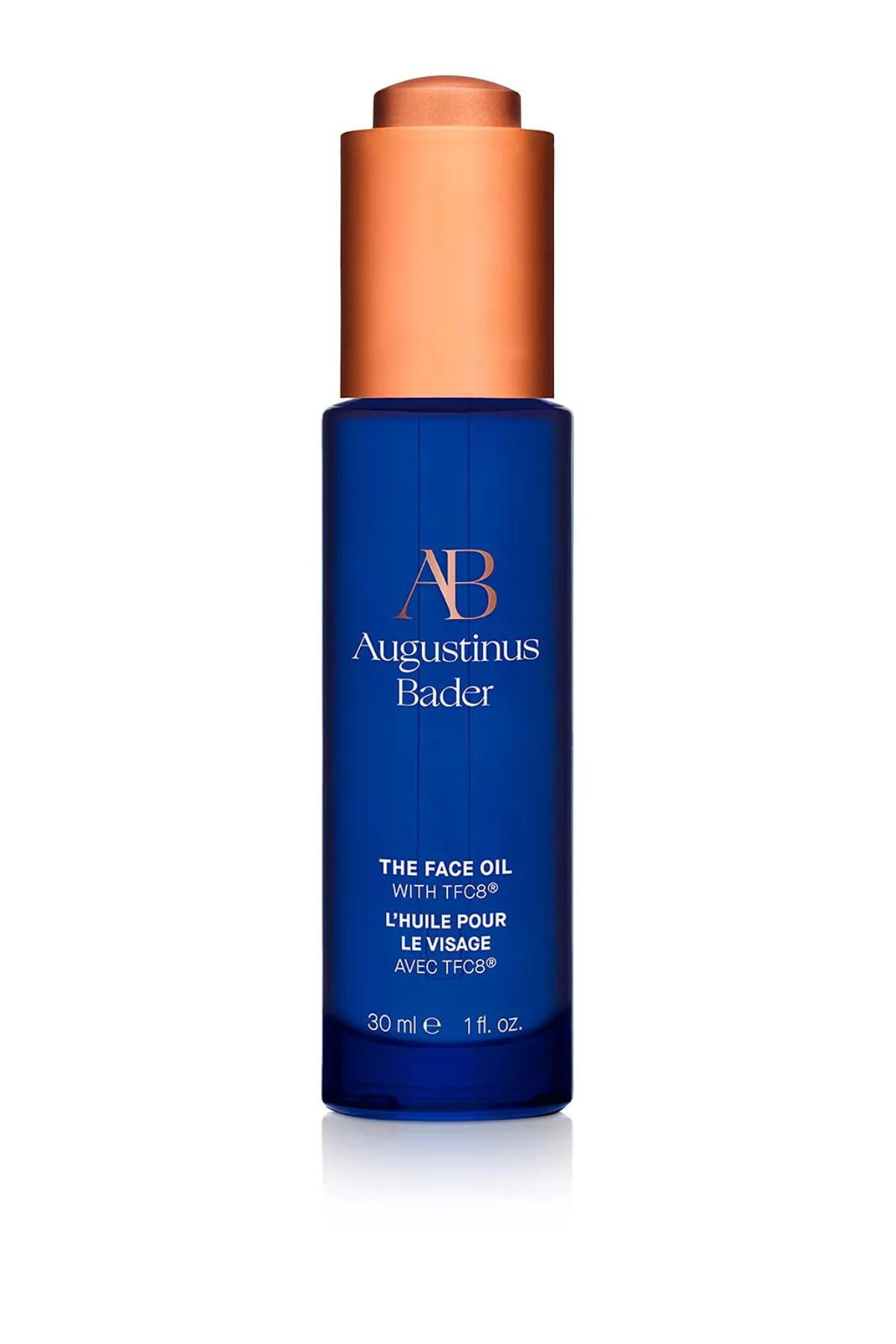
If you’re a fan of the brand’s Face Cream, Face Cream Rich, or even the Essence, I promise you’ll fall in love with this luxe Face Oil. It contains a specially formulated blend of amino acid-rich oils (think: argan oil, hazelnut oil, babassu oil, and more) that are designed to trap moisture in the skin. The result? Increased hydration, a healthier barrier, and stronger skin. Of course, it also includes the brand’s proprietary TFC8 complex, which is packed with vitamins and nutrients that promote renewal.
Key Ingredients: TFC8 complex (renewing), pomegranate seed extract (renewing), babassu oil (hydrating), karanja oil (hydrating), argan oil (hydrating), hazelnut oil (hydrating)
Size: 1 fl. oz.
Who It’s For: Intensely hydrating yet fast-absorbing, this nourishing oil strengthens the moisture barrier of all skin types, including sensitive. Clinical results show that it helps address fine lines, wrinkles, loss of firmness, and uneven pigmentation, too, making it a great choice for anyone looking to target signs of aging.
What We Love: Softens the look of lines and wrinkles; Non-comedogenic; Absorbs quickly with no greasy or oily residue
What We Don’t: Might pill with certain products; Very expensive
Customer Review: "I really love this product. It makes my skin look smooth and glow. I use it at night with my moisturizer. The smell is great and doesn't leave me feeling sticky. I'll be buying this again and again." — Nordstrom
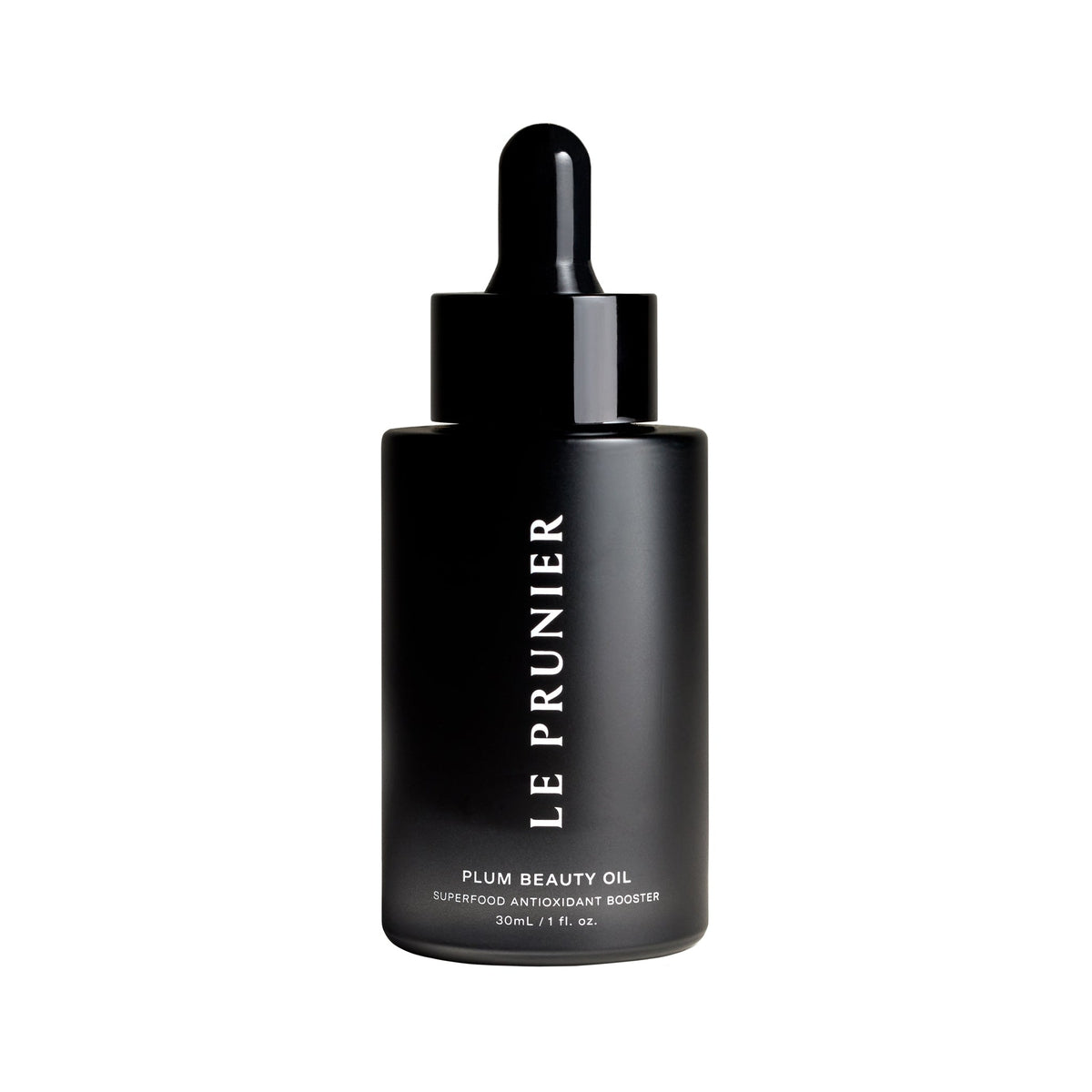
Le Prunier’s Plum Beauty Oil only contains one ingredient—you guessed it, plum oil—which is a nutrient powerhouse. Brimming with antioxidants, omega fatty acids, vitamins A and E, and polyphenols, this multifunctional oil deeply nourishes, protects, and seals in moisture. Beyond using it as just a face oil, it makes a great primer or a glow-boosting additive to your foundation—plus, you can use it to protect hair against heat damage, soften cuticles, or soothe dry patches. This formula is also a go-to for MC Beauty Director Hannah Baxter, who swears by it as the final step in her nighttime skincare routine to lock in moisture, soothe irritation, and wake up with insanely radiant skin.
Key Ingredients: Plum oil (nourishing, protective)
Size: 1 fl. oz.
Who It’s For: Considering its multipurpose use, this oil is great for anyone looking for a nourishing oil to hydrate the face, hands, hair, and body.
What We Love: One-ingredient formula; Multipurpose; Super nourishing; Editor-approved
What We Don’t: Strong (natural) scent
Customer Review: “I really love this oil. It makes my skin feel great and is one of the only products that has helped with my partner’s rosacea. The lovely smell is an added bonus!” — Credo Beauty
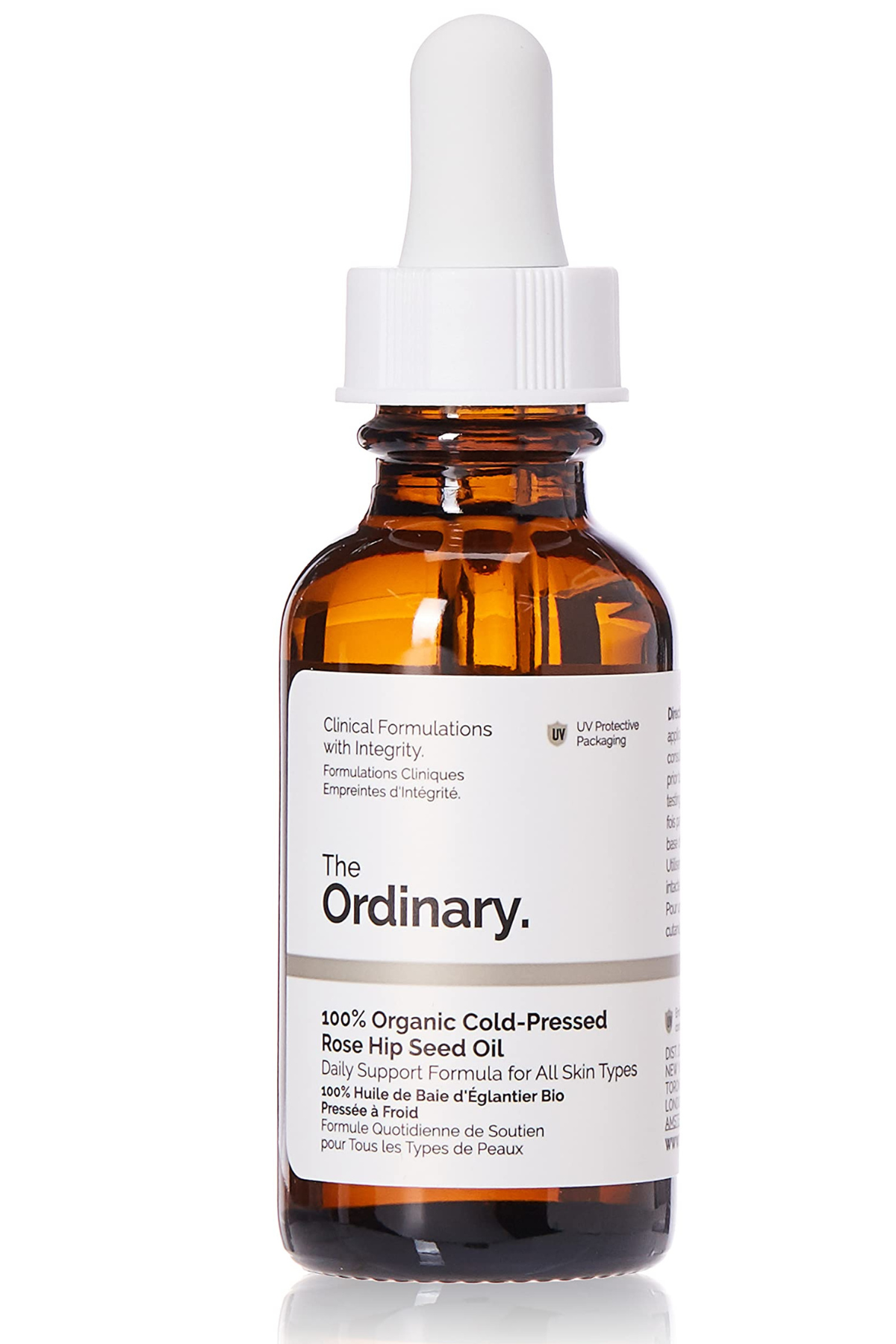
A great face oil doesn't have to break the bank. Take this option from The Ordinary, for example. It costs just $11 and gets the job done thanks to its 100% rosehip seed oil formulation. It’s simple and fuss-free, but the natural-origin oil is highly effective at hydrating the skin and reducing signs of photoaging. It does have a stong love-it-or-hate-it scent, but just take it as a sign that it’s potent and working.
Key Ingredients: Rosehip seed oil (hydrating, renewing)
Size: 1 fl. oz.
Who It’s For: Anyone looking for a hydrating and rejuvenating face oil that costs less than their lunch will appreciate this efficacious yet affordable formula.
What We Love: One-ingredient formula; Rich in vitamins and fatty acids; Hydrating
What We Don’t: Takes a bit of time to dry
Customer Review: "I use a drop of this below each eye after cleansing and before applying night cream. I definitely notice a difference in the morning when I do this. I also sometimes add a drop to my moisturizer in winter when I need a little extra hydration." — Ulta
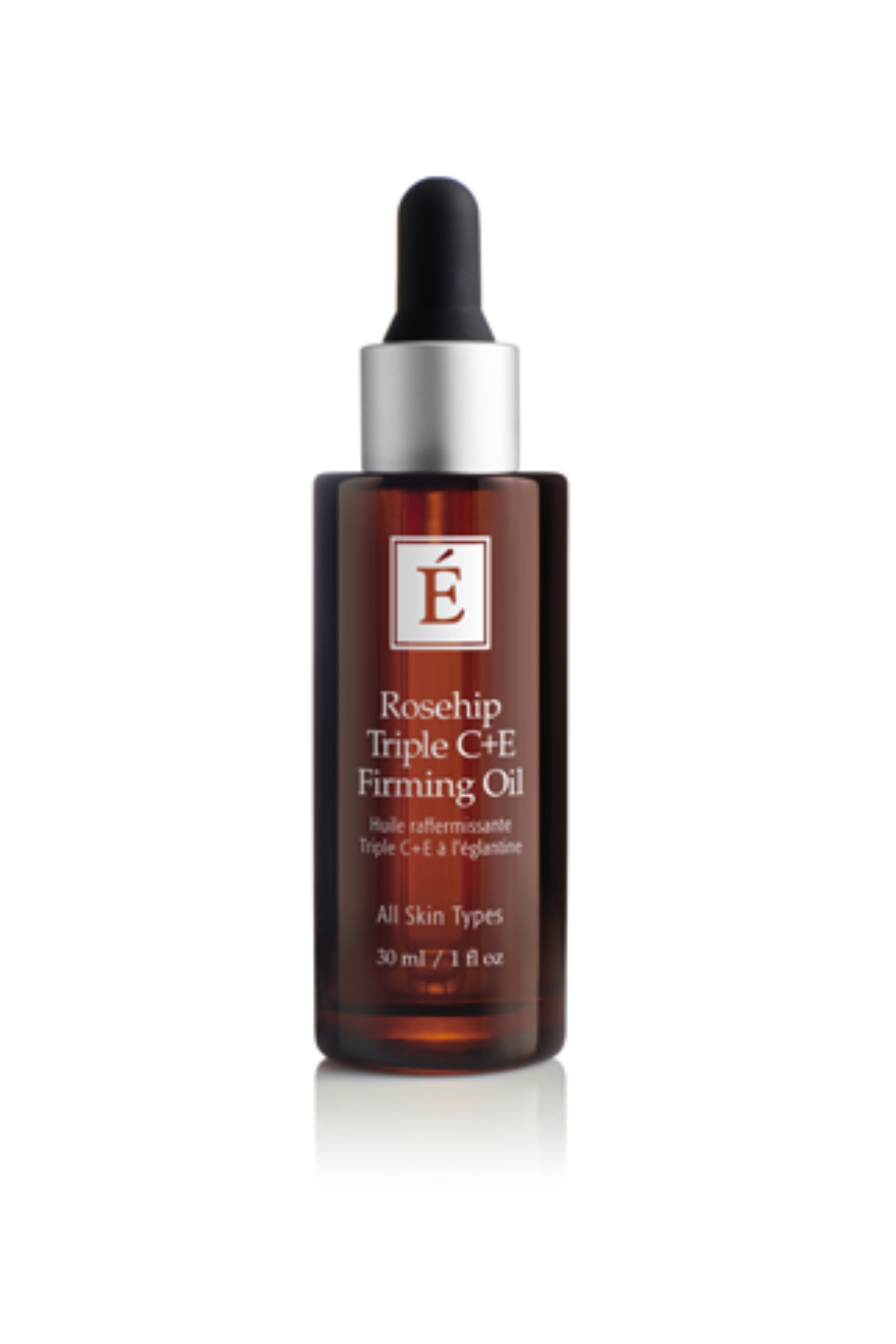
This face oil may be pricey, but it’s truly effective at infusing life back into dry skin, thanks to superstar vitamins like vitamins C and E—which firm, heal, and protect the skin from free radicals—and soothing and strengthening rosehip oil. For this reason, Marie Claire E-commerce Editor Julia Marzovilla is a big fan, noting how well it leaves her dry and dehydrated skin plump, soft, and glowing. “I also spent two weeks in Los Angeles (a famously dry place) with just this face oil and my regular moisturizer and made it through with flying colors,” she notes.
Key Ingredients: Rosehip oil (hydrating), jojoba oil (hydrating), vitamin C (firming), vitamin E (healing)
Size: 1 fl. oz.
Who It’s For: If you’re looking to splurge on a truly luxurious and hydrating face oil, this antioxidant-rich formula is worth its high price tag. It’s an especially great choice for those looking to address premature signs of aging like loss of firmness and photoaging.
What We Love: Great for dry skin; Plumping; Protects against environmental stressors
What We Don’t: Smells herbaceous
Customer Review: "This product has such a nice consistency, and although it's an oil, it leaves a beautiful sheen on my face and gives my skin a very healthy glow, rather than leaving it greasy. I was a bit apprehensive at first to add an oil to my routine, but even though I haven't been using it for super long, it's been a great addition to my skincare routine so far and layers well with my moisturizer!" — Dermstore
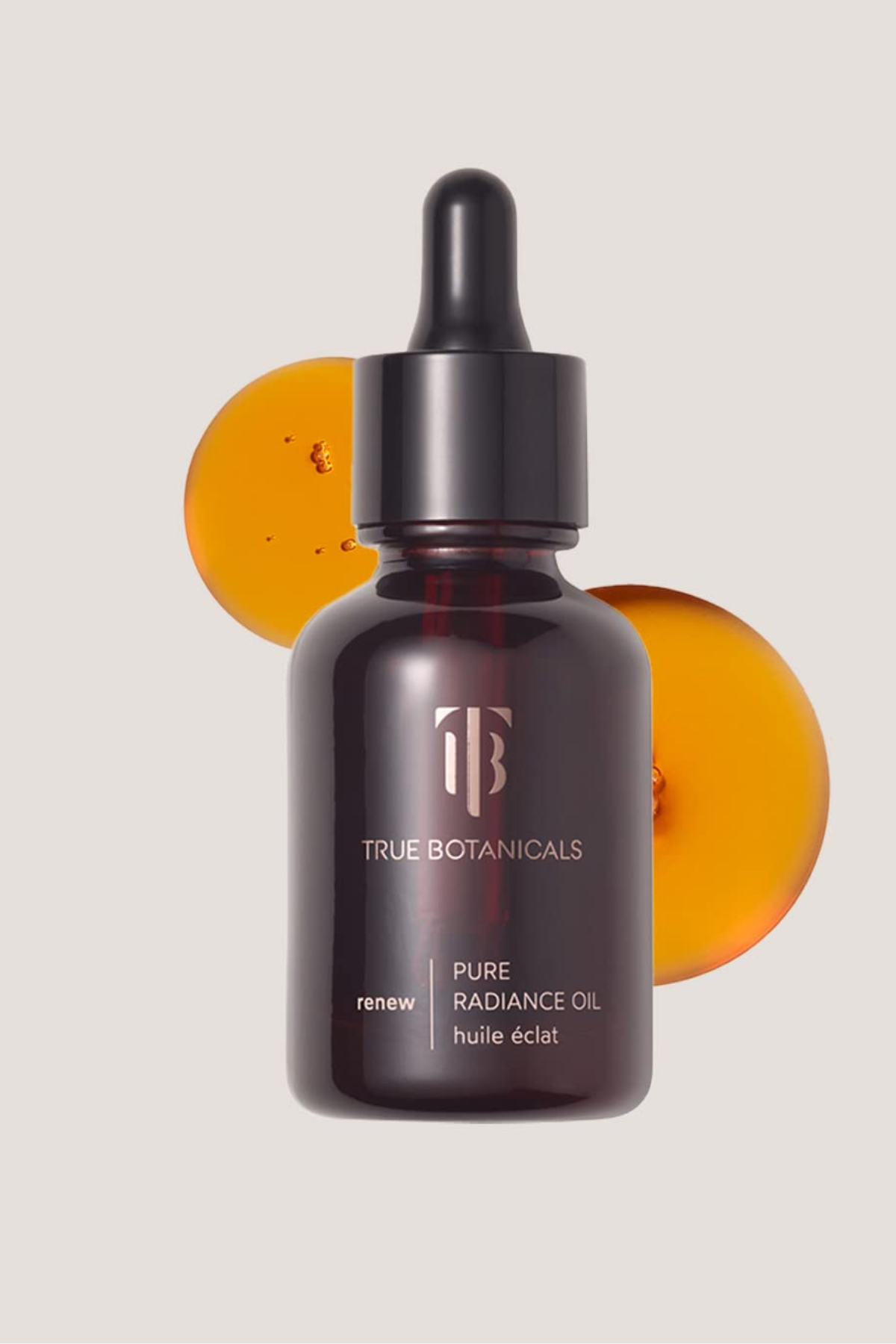
Calling all combination skin types! This particular option from True Botanicals can replace your moisturizer and provide thorough, albeit lightweight hydration to keep your temperamental skin in check. As an added benefit, it also has plumping and smoothing abilities that will decrease the look of fine lines and wrinkles in mature skin types. You can expect a mix of neroli and jasmine from a scent perspective.
Key Ingredients: Chia seed oil (renewing, strengthening), kiwi seed oil (renewing, strengthening), passion fruit oil (hydrating), papaya seed oil (hydrating), algae extract (protective), astaxanthin (protective)
Size: 1 fl. oz.
Who It’s For: This nutrient-packed formula plumps and hydrates without clogging pores, making it great for most skin types—especially combination skin battling both dry and oily patches.
What We Love: Nutrient-dense formula; Targets signs of aging; Non-comedogenic
What We Don’t: Fragrant
Customer Review: “After only a week of using the Renew Radiance Oil, I am hooked! My skin is so hydrated! My skin tone is already evening out so much, and my blackheads are all but gone. I have a healthy glow to my skin. Very, very happy with this product!" — Nordstrom
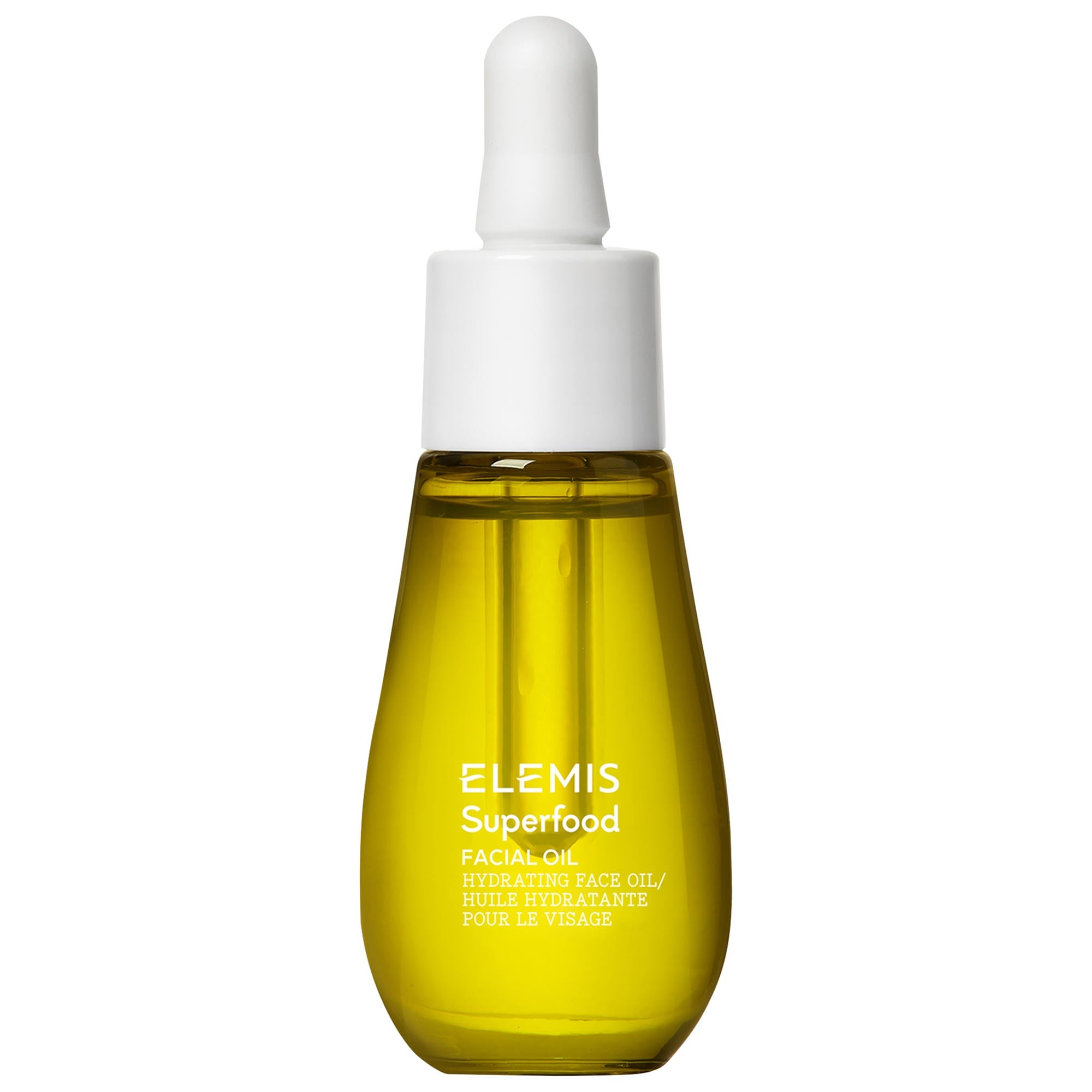
If a greasy face oil has ever turned you off, this lightweight formula will surely change your mind. Formulated with a blend of nine superfood oils, it expertly combats dryness and dullness while visibly brightening, firming, and hydrating the complexion. Despite its nourishing prowess, it absorbs quickly without a trace, leaving skin soft, never sticky.
Key Ingredients: Flaxseed oil (hydrating), daikon radish (softening), broccoli seed oil (anti-inflammatory)
Size: 0.5 fl. oz.
Who It’s For: For a face oil that’s nourishing, not greasy or sticky, you can’t go wrong with this formula—it’s a great option for both dry and oily skin types (and everything in between).
What We Love: Light, non-greasy texture; Antioxidant-rich; Brightens and firms
What We Don’t: Strong scent
Customer Review: “This oil is a lifesaver for my dry skin, especially when I apply makeup. I love applying this in the morning and night. This oil feels super hydrating without leaving my skin greasy. I highly recommend this product.” — Sephora
What to Look For in Face Oil
- Type of Oil
There is a wide range of oils to choose from—and the best one for you is closely related to your specific skin type and concern. "For example, for sun-damaged skin, rosehip oil is one of my favorite oils since it has a high ratio of linoleic acid, which has not only been shown to be beneficial for those with acne, but also has been shown to reverse UV-induced hyperpigmentation," explains Dr. Levin.
Oily skin and acne-prone skin, on the other hand, are best off with jojoba oil. "Its structure mimics your own skin's natural sebum, which is appropriate for oily and acne-prone skin while providing moisturization," she adds. Tea tree oil is also a great facial oil alternative to acne-fighting ingredients such as salicylic acid and benzoyl peroxide. (There is a rare chance of allergic contact dermatitis with tea tree oil so if you develop a rash, it’s important to see a board-certified dermatologist.)
- Treatment
More often than not, these products are packed with additional ingredients that provide supplementary benefits. "Since some facial oils are antioxidants and have vitamins like C and E, they neutralize free radicals to slow the aging process," says Dr. Levin. "Certain facial oils have hydration properties and can be used as a moisturizer to help restore the natural oils in the skin and hair, improve skin hydration, and restore and strengthen the skin’s natural protective barrier."
- Fragrance
If you're not sensitive, then by all means, go straight for the deliciously smelling products. If you are sensitive? Steer clear. "Fragrant plant-based oils or essential oils can cause skin irritation, photosensitivity, and even cause allergic reactions," says Dr. Levin. Those with known plant-based allergies or sensitive skin in general should avoid fragrant essential oils. Look for jojoba oil, plum oil, argan oil, or grapeseed oil options.
How to Use Face Oil
When it comes to face oil, a little goes a long way, notes Dr. Reszko. “Apply two to three drops of the face oil to your fingers and gently pat it into your skin, starting from the neck and working your way up and outwards,” she says. As a rule of thumb, face oil should be the very last step in your nighttime skincare routine, and for daytime use, it should be applied after your serums and moisturizers and before your sunscreen and makeup.
However, Dr. Levin notes that you should exercise caution when applying it in the morning. "When using an oil during the day, you do need to be careful about how it interferes with your SPF, as oils have the ability to break down or dilute your sun protection," she says. If you're new to the oil game, stick with nighttime application to start as you grow accustomed to the formula.
Can I Use a Face Oil If I Have Oily Skin?
"It used to be widely believed that using oil in your skin-care routine was a no-no for acne or oily-prone skin. We now understand well that not all oils are the same, and while some facial oils can clog skin and worsen acne, the right oils can actually re-balance the skin's sebum and water ratio as well as help hydrate and moisturize the skin," says Dr. Levin.
That being said, it’s all about finding the right oil, says Dr. Reszko. “Look for lightweight, non-comedogenic oils like jojoba or squalane, which won’t feel heavy when applied or greasy to the touch, to help balance and promote the regulation of sebum production without clogging pores.” Argan, marula, and rosehip oils are also great non-comedogenic choices.
Why Trust Us
To compile this list of the best face oils, we scoured the internet and combed through countless customer reviews to find the top-rated options on the market. We also asked the Marie Claire team to share their holy grail picks, tapped dermatologists for their go-to formulas and insights, and asked independent and staff testers to test a mix of cult favorites and new launches.
How We Tested
For each face oil we tested, we assessed the formula's texture and finish, how well it absorbed, and its overall efficacy in delivering its promised benefits—whether that was to hydrate, plump fine lines, or boost radiance deeply.
Meet the Dermatologists

Known for her honesty and love for bespoke medical and cosmetic skin solutions, Dr. Levin has established a loyal following of patients from all walks of life - entire families, skincare enthusiasts, actors, designers, beauty editors, physicians, lawyers, teachers, and many more. As a native Californian, Dr. Levin graduated summa cum laude from the University of California of Los Angeles (UCLA) and earned her medical degree from the University of California of San Francisco (UCSF), as a member of the highest honor society, Alpha Omega Alpha. She completed her internship at the California Pacific Medical Center and dermatology residency at New York University Langone Health. As a clinical assistant professor at Mount Sinai Icahn School of Medicine, she is committed to contributing to the field of dermatology by teaching dermatology resident physicians and medical students, as well as serving as a reviewer for various scientific journals. She is a fellow of the American Academy of Dermatology, the American Society of Dermatologic Society, and the American Society for Laser Medicine and Surgery. She is a leading expert and speaker in facial rejuvenation, laser surgery, acne and rosacea. Dr. Levin has won awards and research grants for her research in laser surgery, acne, and global dermatology. Media knows expertise. Dr. Levin is frequently sought-after as a skincare and beauty expert, regularly contributing to major media outlets and consulting for skincare and beauty companies. Community is a passion for Dr. Levin. She has cared for patients, educated local health care providers, and performed clinical research in various international settings, including Thailand, Uganda, and Botswana. Dr. Levin serves as a member of the Skin Cancer Advisory Committee for Standing Voice, a non-profit organization focused on promoting the well-being of persons with albinism in Tanzania. As a yogi and prior ballerina, Dr. Levin believes in maintaining balance and natural aesthetics. Her commitment to global volunteerism, education, and communication has shaped her holistic approach to skin health. You can often find her in Manhattan, trying different restaurants, local bookstores, watching ballet, and visiting the Met museum with her husband, Ishay.

Anetta Reszko, MD, PH.D., is a world-renowned dermatologist and dermatologic surgeon, a Clinical Assistant Professor of Dermatology at Weill Cornell Medical College and an Assistant Attending Dermatologist at New York Presbyterian Hospital. As a respected leader in the science of the skin, she has published multiple scientific research articles and reviews and has contributed to leading publications in the fields of dermatology and dermatologic surgery.
Her mission from day one has been to enhance the overall skin health in every patient through a whole-body dermatological approach to the skin with a focus on skin cancer awareness, treatment and education. Patients entrust Dr. Reszko with any number of concerns — from skin aging to skin cancer. But what every person who interacts with her will tell you is she’s concerned with the health of their skin from head to toe.
Dr. Reszko brings the same level of compassionate care to every patient who visits her practice — whether they’re in for a tightening light treatment, curious about a suspicious mole, or entrusting her expertise for reconstructive surgery. Every woman, man and child is treated with the same attentive care.
By looking at the body holistically, Dr. Reszko is able to more effectively focus on prevention, early diagnosis and treatment of serious skin concerns.
Get exclusive access to fashion and beauty trends, hot-off-the-press celebrity news, and more.

Samantha Holender is the Senior Beauty Editor at Marie Claire, where she reports on the best new launches, dives into the science behind skincare, and shares the breakdown on the latest and greatest trends in the beauty space. She's studied up on every ingredient you'll find on INCI list and is constantly in search of the world's glowiest makeup products. She's constantly tracking the biggest nail and hair trends to pop up in the beauty space, going backstage during fashion weeks, tracking celebrity looks, and constantly talking to celebrity hair stylists, nail artists, and makeup artists. Prior to joining the team, she worked as Us Weekly’s Beauty and Style Editor, where she stayed on the pulse of pop culture and broke down celebrity beauty routines, hair transformations, and red carpet looks. Her words have also appeared on Popsugar, Makeup.com, Skincare.com, Delish.com, and Philadelphia Wedding. Samantha also serves as a board member for the American Society of Magazine Editors (ASME). She first joined the organization in 2018, when she worked as an editorial intern at Food Network Magazine and Pioneer Woman Magazine. Samantha has a degree in Journalism and Mass Communications from The George Washington University’s School of Media and Public Affairs. While at GWU, she was a founding member of the school’s HerCampus chapter and served as its President for four years. When she’s not deep in the beauty closet or swatching eyeshadows, you can find her obsessing over Real Housewives and all things Bravo. Keep up with her on Instagram @samholender.

